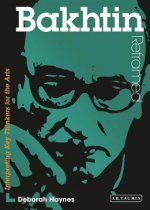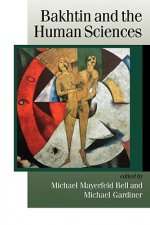
Delivery
Shopping guide





Doesn't suit? No problem! You can return within 30 days
 Gift voucher
any value
Gift voucher
any value
You won't go wrong with a gift voucher. The gift recipient can choose anything from our offer.
Rabelais and Bakhtin
 English
English
 59 b
59 b
 Delivery to Austria
Delivery to Austria
30-day return policy
Customers also purchased


In Rabelais and Bakhtin, Richard M. Berrong demonstrates both the historical and textual weaknesses of the argument advanced by Mikhail Bakhtin and his influential study Rabelais and His World. The publication of Bakhtin's book in the West in the late 1960s brought both Rabelais and Bakhtin to the attention of students interested in the "New Criticism" in literature. Bakhtin argued that the key to Rabelais's narratives was to be found in their language of popular culture, which was intended to free his readers from the ideological "prison house" of official, establishment discourse; to provide them with a nonofficial perspective from which to view--and combat--the establishment and its institutions. Since the publication of Bakhtin's study, scholars such as Peter Burke, Natalie Zemon Davis, and Carlo Ginzburg have shown that the relationship of the upper classes to popular culture changed in the first half of the sixteenth century. Previously these classes had participated fully in the culture of the people (while adhering to their own), but at that time they undertook to exclude popular culture from their lives and from their world. In his refutation of Bakhtin's thesis, Berrong demonstrates the complex and shifting role of popular culture in Rabelais's narratives. His conclusions should interest not only readers of Gargantua and Pantagruel but all students of the sixteenth century, since the use and exclusion of popular culture is an issue in the study of many of the writers, artists, and composers of the period. Richard M. Berrong is an assistant professor of French at Kent State University. He is the author of Every Man for Himself: Social Order and Its Dissolution in Rabelais (1985).
About the book
 English
English


 Contact
Contact How to shop
How to shop









































